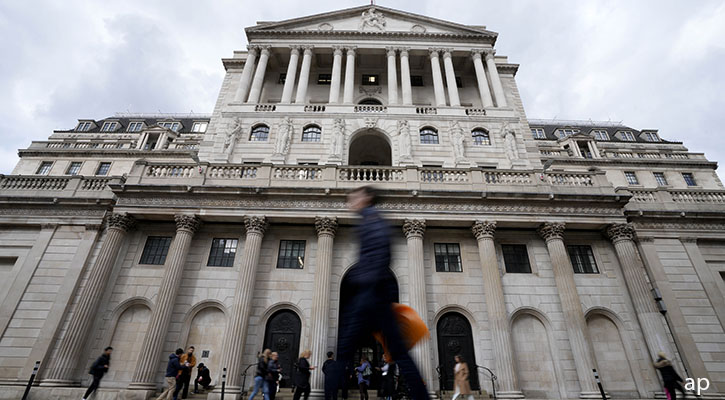
Hopes of an early rate cut by the Bank of England dimmed on Wednesday when the Office for National Statistics confirmed a slight uptick in inflation to 4%.
The increased has once more placed the UK's equity market under overcast skies, after initial hopes a new year and a revamped listing regime would bring it out of the cold.
From the December 17 to the present day, only three Morningstar UK equity categories have achieved a positive return rate. But they barely scraped over zero.
The Morningstar UK Large Cap, UK Large Mid-Cap, and UK Sustainable categories returned 0.54%, 0.04% and 0.71%, respectively.
Small Cap Stocks Under Pressure
However, small to medium-sized businesses have fared worse with the Morningstar UK Small Cap category reporting a loss of -0.77% and the Morningstar Mid Cap category losing 1.81%.
Richard Carter, head of fixed interest research at Quilter Cheviot, argues British businesses won't just be impacted by inflationary pressures. Rather, investors should watch out for the UK's latest GDP figures, which show the UK on the brink of a technical recession amid a weakening labour market.
"What’s more, the falls in inflation prior to December have also started to take effect on pay, with total pay growth slowing more than expected to 6.5% in November, down from 7.2% in October, which will only exacerbate this further," he said.
Carter also points to sustained market volatility due to geopolitical events, most recently, the US-UK led strikes on Houthi rebels in the Red Sea, which could impact consumer prices here at home.
"Whether the Bank buckles under the pressure and begins cutting rates sooner than it might have originally liked remains to be seen," Carter added.
China's Slowdown
Inflation notwithstanding, UK equities will also be impacted by the Chinese economy, which is struggling to maintain its once-lauded position as global driver of growth.
China's economy expanded by 5.2% in Q4 2023, below market expectations. Fears around its falling demand for commodities led the FTSE 100 to drop by 1.3% in the period, which means the index has lost 4% since late December 2023. However, one stock that was not fazed by the inflation news was IMI (IMI), the Birmingham-based engineering company.
The company saw its share price rise by 3.87% yesterday after benefiting from a positive broker note.
For Russ Mould, investment director at AJ Bell, possible delays to interest rate cuts will hit housebuilders, mortgage lenders and tech-related names including Ocado (OCDO) the hardest.
"Housebuilders will be furious at the data release as there have recently been tentative signs of a pick-up in the property market and potential buyers slowly regaining confidence," he says.
"Now banks, building societies and mortgage brokers are going to be reaching for their third cup of coffee as they once again have to stomach adjustments to mortgage pricing and potentially having to disappoint more hopeful borrowers who won’t be able to afford higher rates on home loans."
Ocado was the FTSE company most impacted by the inflation data on Wednesday, its share price tumbling by 6.31% to 578.20p. Despite an increase in sales to £620 million over the festive period, the shares remain under pressure, having lost 20% over the last month.




























